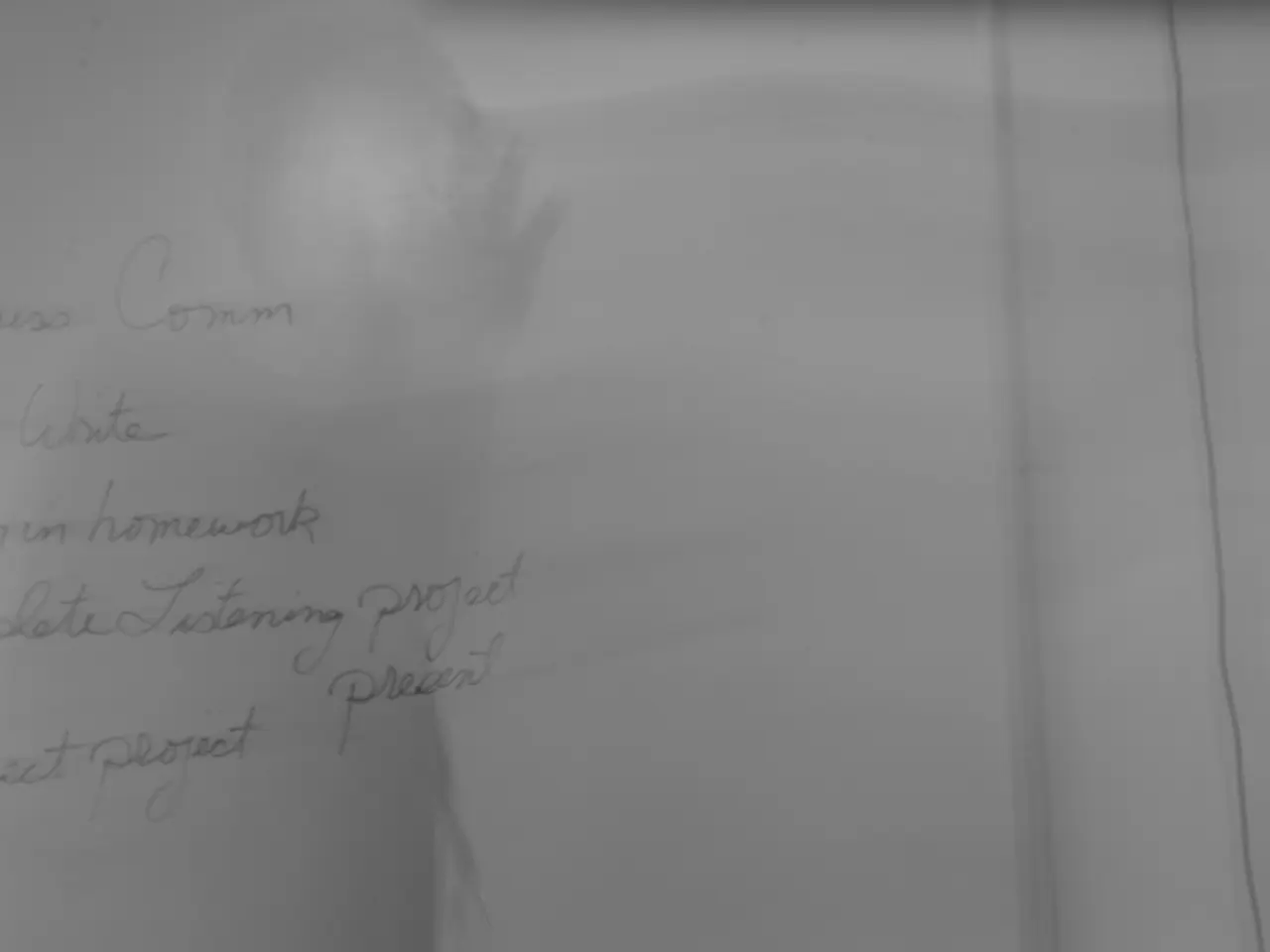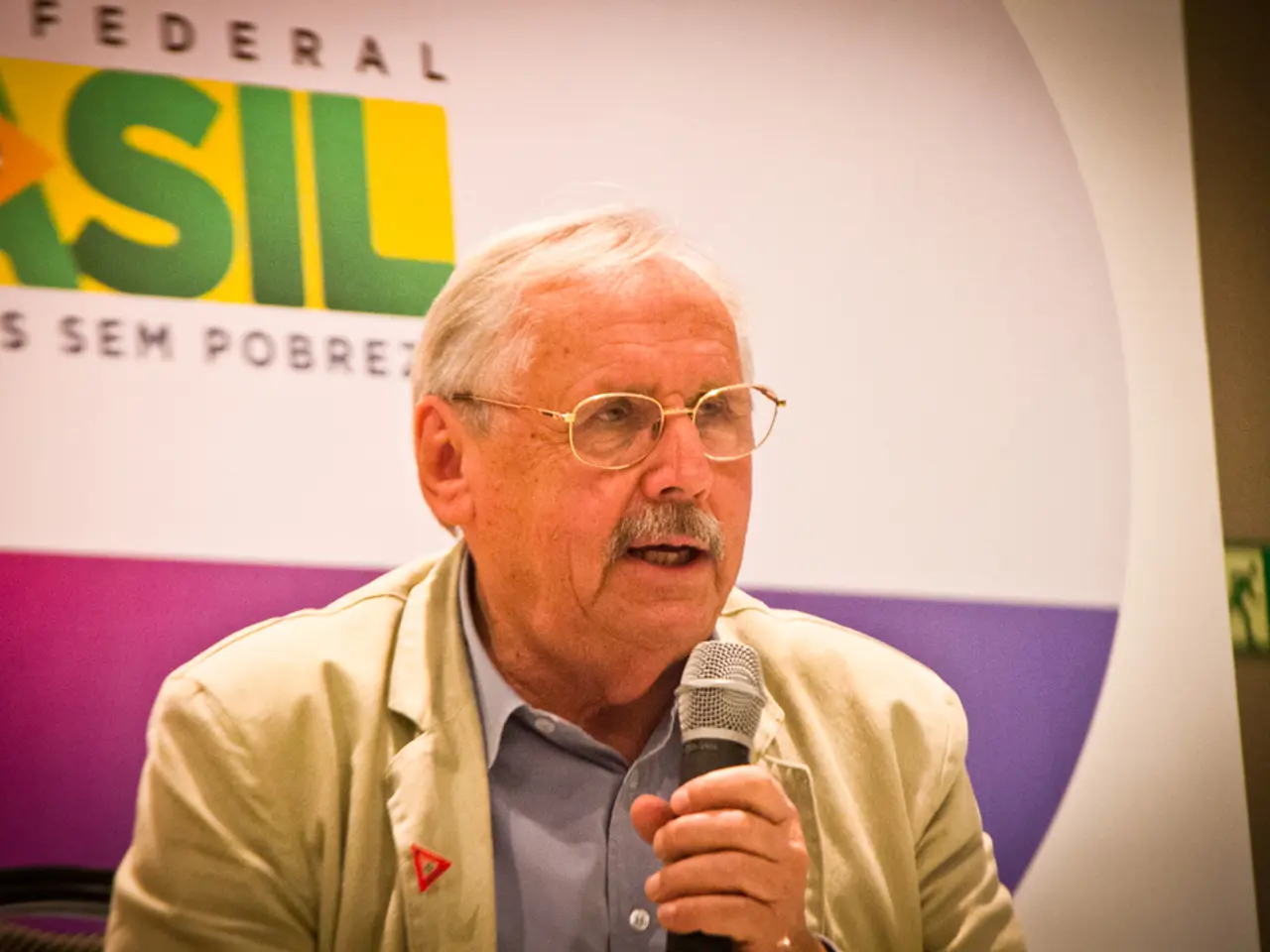Bolivia's Economic Crisis: Preserving State Stability Amid Uncertainty
Bolivian President Arce issues dire warnings of potential financial collapse due to ongoing economic turmoil
Social media buzzes with protests, as Bolivia's President, Luis Arce, issues a stern warning: impending state bankruptcy. beset by an economic crisis, the country desperately seeks new loans to avert this financial precipice. "We're spending our very last dime - but what if we run out of cash?", Arce candidly shared with news agency AFP.
Bolivia's debt burden weighs heavily, at $13.3 billion (€11.6 billion), more than 37% of its national income. The Inter-American Development Bank, the Development Bank of Latin America (CAF), the World Bank, and China are their major creditors. "We're currently losing money hand over fist," remarks Arce, who assumed power in 2020. Normally, new loans would alleviate the strain, replacing the payment of old loans; however, such financial inflows are currently non-existent.
Arce's pleas for Parliament to approve $1.8 billion (€1.6 billion) in international loans have fallen on deaf ears so far. By December, Bolivia faces an urgent need for $2.6 billion (€2.3 billion) for fuel imports and outstanding debt payments. The economic downturn manifests in acute foreign currency, fuel, and basic foodstuff shortages. In May, inflation surged to 18.4% year-on-year - a level not seen in nearly two decades. The boliviano's value also plummets.
Despite the waves of criticism, Arce, from the Movement for Socialism (MAS) party, remains steadfast, refusing to resign. However, he has announced his decision not to seek re-election in the forthcoming presidential election in August. Arce's approval ratings, as per the Latinobarómetro polling institute, hover around nine percent - one of the lowest in all of South America.
Bolstering Bolivia's Economic Resilience
Bolivia's economic recovery necessitates a multifaceted strategy. This includes fiscal consolidation, accessing new external funding, monetary reforms for currency flexibility, tackling supply constraints, fostering private sector growth, and maintaining social services amid the crisis.
1. Fiscal Austerity and Reduced Spending:Through smart fiscal consolidation efforts, Bolivia can expand its fiscal space. Targeted spending cuts on unproductive areas, such as loss-making state-owned enterprises (SOEs) and bloated public sector salaries, can help minimize fiscal deficits without initiating a recession.
2. Enhancing Access to External Financing:Securing new foreign funding is vital to prevent debt defaults. Negotiations with international creditors and financial institutions are crucial to avoid a financial deadlock and its ensuing destabilization and social unrest.
3. Currency Reform and Monetary Policy:Restoring public trust in monetary policies is essential. Bolivia must prepare for a gradual shift towards a flexible exchange rate regime. A more flexible exchange rate would correct financial imbalances, preserve foreign reserves, and potentially prevent future currency crises.
4. Addressing Supply-Side Constraints:By eradicating barriers such as import scarcities, weak agricultural production, and roadblocks, Bolivia can boost economic activity. Improved public investment management, governance, and regulatory frameworks will foster competitiveness and help diversify the economy beyond traditional sectors.
5. Bolstering Private Sector Growth and Economic Diversification:Encouraging private sector expansion into more sophisticated and export-oriented sectors can help alleviate the absence of diversification and structural weaknesses in Bolivia's economy. Investment obstacles must be eliminated, and foreign investment incentivized.
6. Safeguarding Social and Healthcare Services:Given the economic crisis's far-reaching impact on healthcare, efforts must be made to ensure affordable medical care and equipment availability. These steps address critical social needs during this challenging period and help mitigate the worsening health outcomes associated with economic hardship.
7. Engaging with the IMF and Undergoing Structural Reforms:Collaborating with the International Monetary Fund (IMF) may help stabilize Bolivia's economy. Effective crisis management, improved financial oversight, and financial reforms such as capping real wage growth and removing extraordinary bonuses in the public sector can enhance fiscal stability.
A Brighter Economic HorizonBy implementing these strategies, Bolivia strives to not merely manage the present crisis but to build a more robust and sustainable economic future. Short-term measures meet immediate challenges, while long-term solutions foster lasting resilience.
Community policy discussions may arise as Bolivia seeks innovative strategies to address its economic crisis. Specifically, sculpting fiscal austerity measures can help minimize spending, potentially focusing on reducing the intelligibility of loss-making state-owned enterprises and public sector salaries (1).
As a way to circumvent potential debt defaults, it is crucial for Bolivia to involve itself in discussions with major creditors and financial institutions such as the Inter-American Development Bank, CAF, the World Bank, and China, in order to secure new external financing (2).
Implementing monetary reforms to promote currency flexibility may help restore public trust in Bolivia's economic policies, thereby correcting financial imbalances, preserving foreign reserves, and potentially preventing future currency crises (3).




